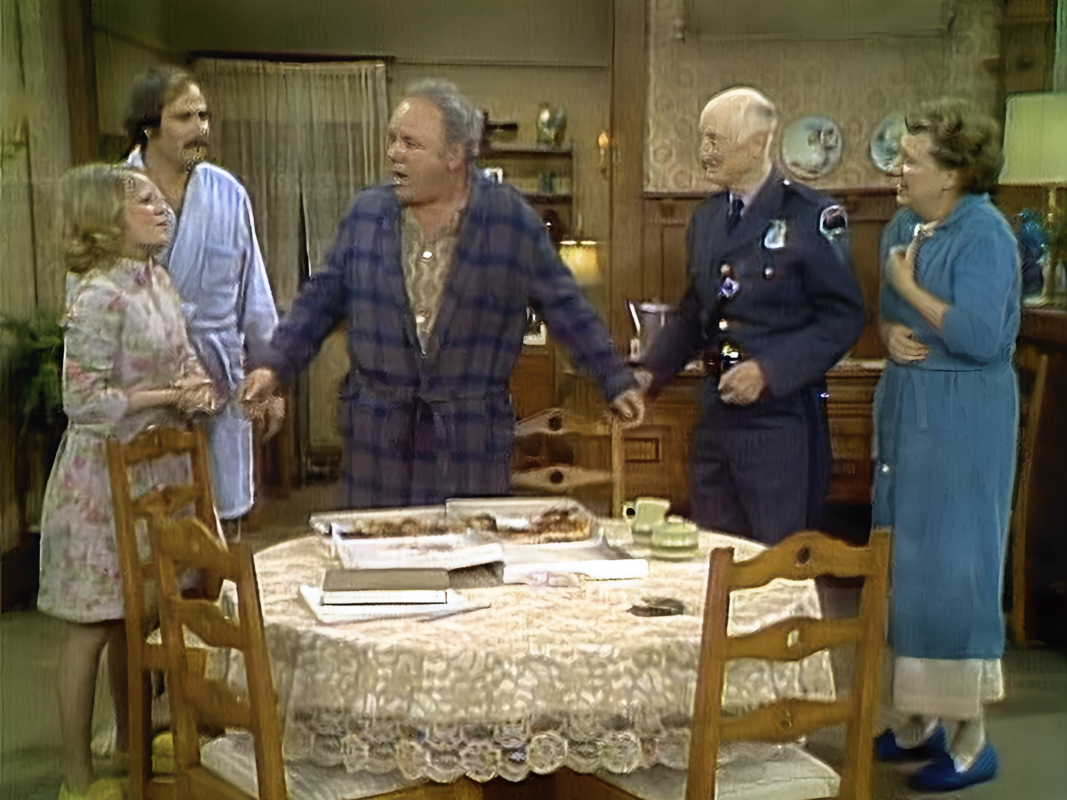
Renowned scholar and public intellectual Eddie Glaude Jr. has shared his critical perspective on the iconic television show “All in the Family,” highlighting the complexities and challenges inherent in using humor to address racial issues. Glaude, a professor of African American Studies at Princeton University and author of books such as “Begin Again: James Baldwin’s America and Its Urgent Lessons for Our Own,” offers a thought-provoking analysis of the show’s approach to racial humor.
“All in the Family,” created by Norman Lear, was a groundbreaking sitcom in the 1970s that aimed to address various social issues through the lens of comedy. The character of Archie Bunker, portrayed by Carroll O’Connor, embodied the prejudiced attitudes of many Americans at the time. While the show sought to critique these attitudes through satire, Glaude argues that the use of humor in this context presents significant challenges.
“Humor can be a double-edged sword,” Glaude explains. “While it has the power to bring light to difficult subjects and provoke important conversations, it also risks trivializing serious issues and reinforcing harmful stereotypes if not handled with care.”
One of Glaude’s primary concerns is the potential for misinterpretation by the audience. “The character of Archie Bunker was intended to be a critique of bigotry, but not all viewers saw it that way,” he notes. “Some might have found his prejudices amusing or even agreeable, which could undermine the show’s critical stance on racism.”
Glaude emphasizes the importance of context and audience in the reception of satirical content. “For satire to be effective, the audience must be able to discern the irony and underlying message,” he says. “However, when dealing with deeply ingrained social issues like racism, there is always a risk that the satire will be lost on some viewers, leading to unintended consequences.”
Moreover, Glaude critiques the show’s focus on individual prejudices rather than systemic racism. “By centering on Archie’s personal bigotry, ‘All in the Family’ might give the impression that racism is merely a matter of personal attitudes rather than a pervasive and structural problem,” he argues. “This can obscure the broader context of racial injustice and the need for systemic change.”
Glaude also points out the limitations of representing complex social issues through the lens of a single character. “Archie Bunker’s perspective, while useful for highlighting certain prejudices, is limited in its ability to capture the full scope of racial issues in America,” he explains. “We need diverse narratives that include the voices and experiences of those directly affected by racism.”
In his work, Glaude often explores the intersections of race, politics, and culture, advocating for a deeper understanding of systemic inequalities. He believes that media has a crucial role to play in this process but cautions that it must be approached thoughtfully. “Creators have a responsibility to ensure that their work challenges audiences to think critically about social justice issues,” he asserts. “Humor can be a powerful tool, but it must be used with an awareness of its potential impact.”
Glaude’s critique of “All in the Family” serves as a reminder of the complexities involved in using comedy to address serious social issues. His insights highlight the importance of intention and clarity in storytelling, particularly when dealing with topics as sensitive and significant as racism.
“Ultimately, the goal should be to foster meaningful dialogue and drive social change,” Glaude concludes. “This requires a careful balance between entertaining and educating the audience, ensuring that the underlying message is not lost in the humor.”
Eddie Glaude Jr.’s analysis of “All in the Family” encourages us to critically evaluate the media we consume and its role in shaping societal attitudes. As we continue to engage with stories that tackle social issues, his perspective underscores the need for thoughtful and responsible storytelling that can effectively challenge and change harmful narratives.
